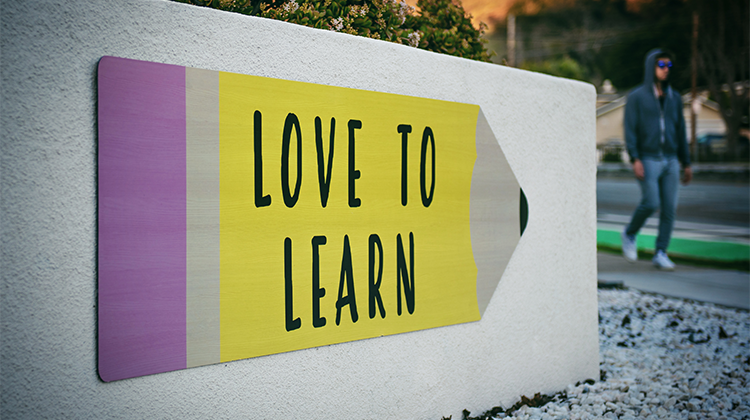The World has faced a technological advance, which has impacted humanity in many different aspects, and language learning is no exception; I would say that today it is much easier to learn any language of interest, there are online courses, exchange platforms, platforms with native teachers and countless content in the language we want, I think that it would be ridiculous to say that a high level cannot be achieved in this process. But it's a fun process but really difficult to carry out, especially when we have done it by ourselves, we find a confusing and often frustrating path, so here we have six tips to make your learning process easier and more successful.
1. Define your way of learning
We don't need too many details but there are 13 different types of learning, categorized according to the ease that people have to acquire knowledge; identify which ones fit you and use them in your favor, for example, if you are a person who learns experientially it will be much easier for you if you are looking for immersive situations in the language, while if your form is visual you should use vocabulary cards, maybe it works better if you combine them; The important thing is that you know what kind of resources or activities are most effective for you and you rely on them.
2. Find someone to support you in your process
The most common ways like study groups or a friend who is learning might work quite well, but now we have awesome platforms where we can find native tutors or people interested in language exchange, You may have to try several times until you find someone with whom you empathize well, but you can even make friends around the world to practice languages, and this is one of the aspects that I consider most important in self-taught learning because a native speaker is able to correct you, guide you and teach you a lot about the language, and also teach you about cultures completely different from yours.
3. Pick content in the language that you are learning
In our daily life, we tend to consume content passively while we carry out our activities, music, radio, podcast; and more actively if you read books or watch movies, series, etc. try that the content you are going to consume is in the language of your interest; in the case of music don't worry if at first you can't understand too much, little by little your ear and your brain will get used to the different sounds, but in the case of podcasts or books, the ideal would be to look for digestible topics for your level, in the case of lower levels the children’s content is usually helpful; but do not leave out learning resources such as grammar books or some courses of different languages, that we can find online and that could give you a topic guide to study.
4. Sets clear objectives
It’s always easier to get there if you’re clear about where you’re going, and languages are no exception.
It is essential to be clear about what we want to achieve in the short and long term, to create a clear plan of action to achieve what we seek; it is important that our plan be realistic, for example, it is not possible to master the use of a specific verbal tense if you do not yet know basic vocabulary; you can investigate what knowledge should be mastered at each level and gradually learn them in a specific order.
5. Diversify your notes
Remember that you will have to go over your notes again and again, otherwise what would be the point of doing them? To make it easier and more entertaining, use images, tables, text, voice notes, or whatever you can think of to make it easier for you to study them over and over again.
6. Organize your time
The longer you invest in studying a language, the sooner you’ll see results?
I would say no, clearly not all have the same daily activities and therefore not the same availability of time, don't get frustrated if you can't spend an hour or two sitting studying, the main thing is to make sure to be constant, so it is important that you always look for a space in your day where you can devote all your attention, especially if you are in hectic days; remember that quantity is not necessarily quality, could be even more productive 10 or 20 minutes in which you devote yourself fully than one or two hours in which you ramble.
Then, once you have clear your way of learning, your objectives, and what activities and resources you will implement; it is advisable to set a schedule according to your routine; you decide how many times a week and for how long, but remember the importance of respecting that time.
EXTRA: ENJOY IT!
Learning a language is definitely not an easy thing and you need to be quite disciplined and persistent to achieve it, but it doesn't mean that it must be something boring or tortuous, quite the opposite! find all the positive things that it contributes to your life apart from the great satisfaction that you feel when achieving the goals, keep in mind the reasons why you started, and remember that flexibility is your best friend and that you can change your plan as many times as you deem necessary, keeping the goal, of course.







